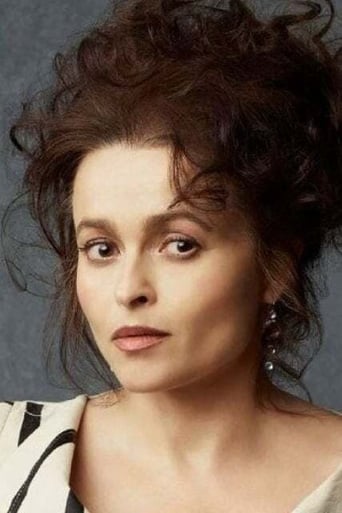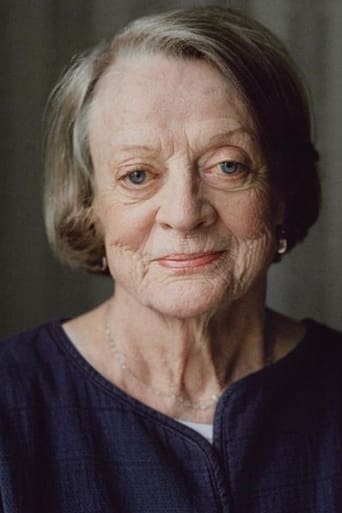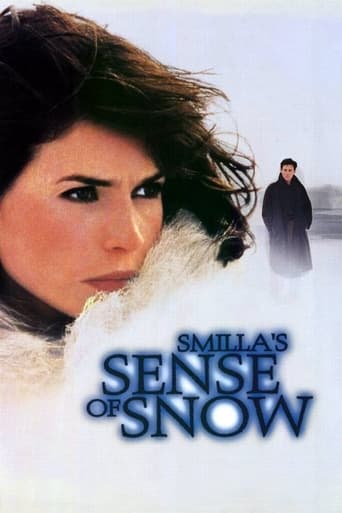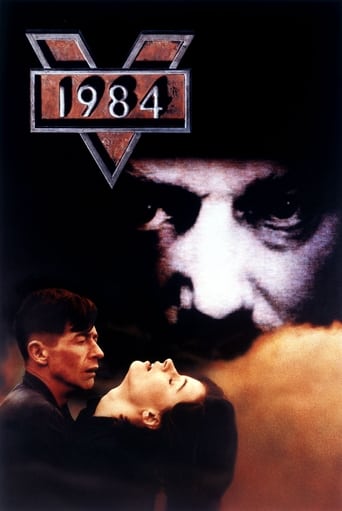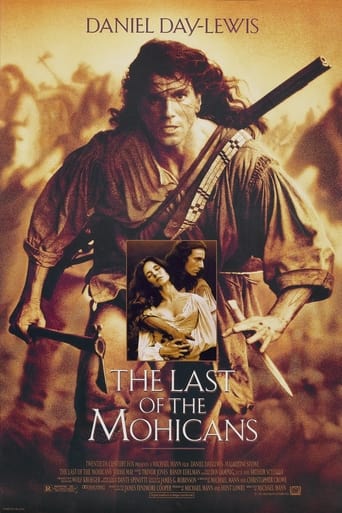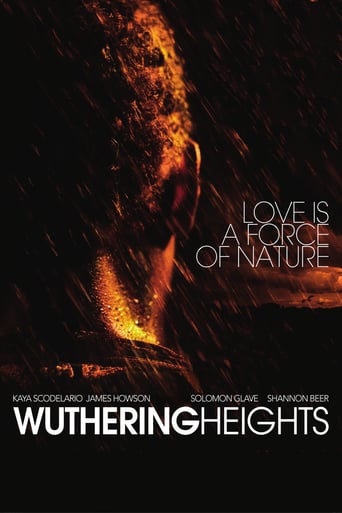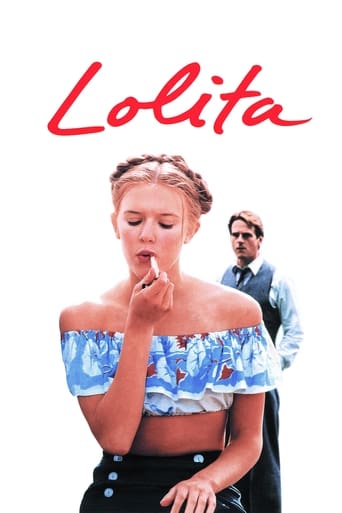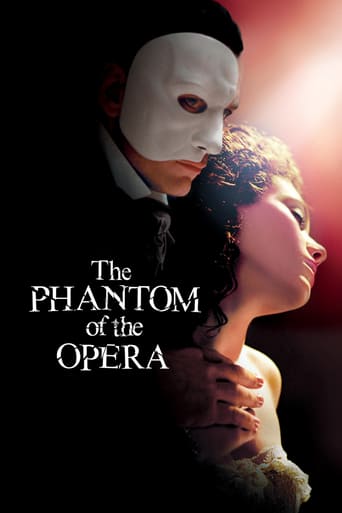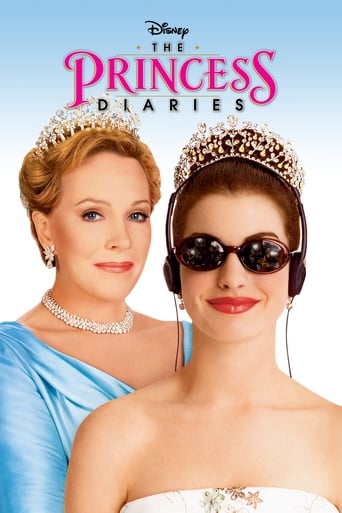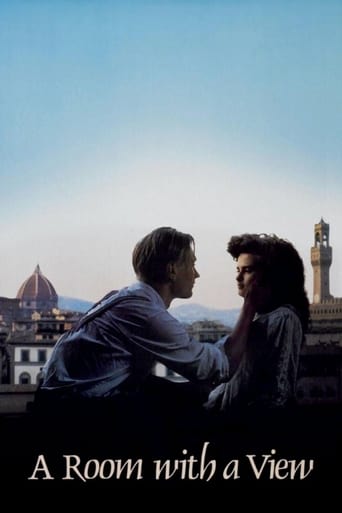

 Watch Now
Watch Now






A Room with a View (1986)
 Watch Now
Watch Now






When Lucy Honeychurch and chaperon Charlotte Bartlett find themselves in Florence with rooms without views, fellow guests Mr Emerson and son George step in to remedy the situation. Meeting the Emersons could change Lucy's life forever but, once back in England, how will her experiences in Tuscany affect her marriage plans?
Watch Trailer
Cast


Similar titles
Reviews
the audience applauded
A movie that not only functions as a solid scarefest but a razor-sharp satire.
Exactly the movie you think it is, but not the movie you want it to be.
It is an exhilarating, distressing, funny and profound film, with one of the more memorable film scores in years,
It is not a movie I would normally have gone near with a barge pole. However, It is such a visual feast and has such excellent acting that it proves I should never judge the proverbial book by its cover. A keeper.
not the theme, not the acting, not the story. but the fascination in front with a meet. this defines this jewelry who, far to be surprising , James Ivory is almost predictable, is charming at all. short, it is a meet between James Ivory and E.M. Forster.nothing more. but this small detail, the performances, the air of an golden age, the great job of Daniel Day - Lewis, the Italian air who brakes the screen, all does "A Room with a View" more than an adaptation. but a travel. and this feeling remains fresh for a long time. because it is a story about emotions and freedom and art and happiness. one of the most simple stories about each subject. but adorable, seductive and fascinating. maybe lovely. and this is the secret for not only see it. but admire it. that is all.
The remarkable thing about the Merchant-Ivory productions (in fact a solid triumvirate if we count the writer Ruth Prawer Jhabvala) is that they're generally less about plots than characters, and so real they never seem to act according to a specific screenplay, but are rather conditioned by the two main forces of the story: space and time.Indeed, over the course of time, relationships are done and undone and the coldest heart can melt like Anthony Hopkins in "The Remains of the Day". "Howard's End" was much about an estate, symbolizing the rural roots of British aristocracy, before it surrendered to business-driven modernism. Generally set at crucial periods of British history, the Merchant-Ivory productions are about people who are the products of their age while a new one is coming, and they generally use their houses as a symbolic stronghold to resist the ineluctable changes.And "A Room with a View", adapted from E.M Forster's novel of the same name, is the metaphor of the very point the story makes. Even the smallest room can open onto a large town, the sky, the infinite, like so many paths one can take from life, if he or she dares to get rid of the weight of past and conventions. A room can be made of beds and austere furniture to welcome a young woman from a British hamlet, Lucy Honeychurch (Helena Bohnam Carter) and her restraining chaperon Charlotte (Maggie Smith), but it can offer a panoramic view of one of the most romantic towns in the world: Florence.And the first pages of this cinematic book open in Florence, in a small pension, where a group of vacationers meet. Miss Charlotte complains about the missing view in the room, to which, invited during the following dinner, a free-spirited man, Mr. Emerson (Delnhom Elliott) proposes to switch their rooms. Emerson came with his son, and both belong to another class, high enough to afford a voyage to Italy, but whose philosophical views suggest that they embraced the turn-of-century, contrarily to the Victorian Charlotte, who refused the proposal, shocked by Emerson's lack of tact, while his reaction proves that he meant no disrespect. She eventually accepts, convinced by other guests of the pension, Reverend Beebe (Simon Callow) and the old Allan sisters.This benign episode foreshadows the coming conflicts between the old and new order in England circa 1910, to which space and time provide crucial elements. The film is set during the Edwardian period; a sort of in-between decade where British people could nonchalantly enjoy the achievements of the more prestigious Victorian era, like a historical calm before the storm of the Great War. And being a film of dazzling imagery, the sight of these British vacationers enjoying a picnic in a Tuscan setting, savoring tea and bathing under a sepia summer sun, and a cool summer breeze, is an eloquent illustration of the quiet optimism that prevailed during that period.And this bourgeois idleness, combined with a natural setting, creates the perfect cocktail for a passionate romance, leading to the inevitable moment when the mysterious George Emerson, played by the handsome Julian Sands, gives a passionate kiss to an unchaperoned Lucy. She didn't see it coming, nor did she expect the kiss' everlasting effect, awakening the most passionate impulses. The kiss sweeps off all the conventions, the good manners that condemned Lucy to a life of rigidity, giving all its meaning to the setting in Florence, the most defining town of the Renaissance. Literally, George's kiss is Lucy's renaissance.But this is only the first act and back home; the kiss is already history after Charlotte's intervention. And when during the next scene, we meet Cecil Vyse, Daniel Day-Lewis as Lucy's future husband, a living caricature of snobbish prig with his oiled hair, rigid stature and annoying noise clip, we're puzzled but not surprised. The film doesn't embarrass itself with explanations and trusts us enough to connect the events together. So, regarding the mysterious choice of Cecyl as a husband, I guess, we should get back to the 'room with a view' metaphor.Indeed, with George, Lucy had 'a room with a view', with Cecyl, she would have thousands of rooms with no view at all. Breaking his eternally taciturn facade, George is given one opportunity to have a heart-talk with Lucy; he tells her that her marriage with Cecyl would turn her into an ornament, for the man would never be able to value her, or any woman for that matter. This is one of the outbursts of passion the film serves at the right moment to remind us that there is still a story after all, and a question: to which direction will Lucy's heart lean? And it's not just a choice between two men, but two orders, two states of mind, two kissing ways.Roger Ebert, in one of his most enthusiastic reviews, insisted on the conflict between heart and mind, passion and intellect. I wish he had a few words about space and time as either the restraining or catalyzing elements in our lives. It's restraining when you have characters with the privilege to enjoy some escapism in a beautiful Italian landscape, but are still tied to Victorian good manners, or catalyzing, when three men, including a priest, play like children in a lake, all naked. The swimming sequence is exhilarating, and the massive male nudity never bothers, a credit to the directing and the cast's performances.Of course, as enchanting as it is, "A Room with a View" is less politically oriented than other Ivory-Merchant productions while there was more to say about socialism, feminism, weight of traditions, bourgeois insouciance, but the specific pretension of "A Room with a View" was to depict another slice of British life, from which two hearts would converge in a small point of the world, a room with a view on the infinite, on the future, on love.
When Lucy Honeychurch (Helena Bonham Carter) and chaperone Charlotte Bartlett find themselves in Florence with rooms without views, fellow guests Mr. Emerson and son George (Julian Sands) step in to remedy the situation.I watched this film knowing nothing about it because I wanted to see a Daniel Day-Lewis movie, and then I saw that Helena Bonham Carter and Julian Sands were in it. Carter was unknown to me until the 1990s, so it was a pleasant surprise to see her in such an early role. Sands is the one who steals the show, and it is a pity that it seems his career never hit the level it should.Day-Lewis is always good, though he plays a rather secondary role here. It would be hard to compare this to any of his other great performances, because certainly they overshadow this one.



